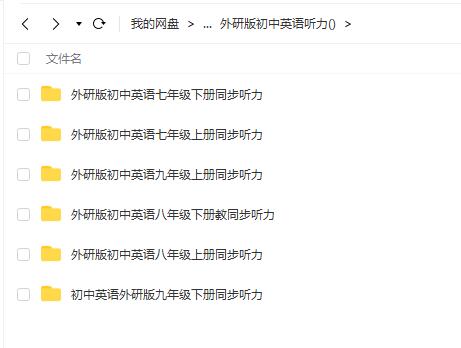英语听力(字幕): 日本决定将核废水排入大海 Japan Decide Dump Wastewater Into Ocean
发布于 2021-04-16 00:08 ,所属分类:知识学习综合资讯

字幕:
AILSA CHANG, HOST:
Japan announced today that it will dump millions of gallons of radioactive water from the damaged Fukushima nuclear plant into the Pacific Ocean. Local fishermen, environmental groups and neighboring countries all protested the move. As NPR's Anthony Kuhn reports from Seoul, discharging the water and cleaning up the wrecked plant will take at least decades.
ANTHONY KUHN, BYLINE: Announcing the government's decision, Prime Minister Yoshihide Suga claimed that the government's plan is realistic and pledged that its handling of the water would exceed safety standards.
(SOUNDBITE OF ARCHIVED RECORDING)
PRIME MINISTER YOSHIHIDE SUGA: (Speaking Japanese).
KUHN: "Discharging the treated water is an unavoidable issue," he said, "in the decommissioning of the Fukushima Daiichi nuclear plant.?x-oss-process=image/format,webp" style="max-width:100%">
The government says the water will be treated before being released gradually. It'll start in two years and continue for decades. Haruo Kurasawa is a Tokyo-based science journalist. He says that the decision represents a consensus within the Japanese and international establishments.
HARUO KURASAWA: (Through translator) At this point, we have no choice but to release the treaded water. This is the general perception of researchers, the government and nuclear regulators.
KUHN: The water was used to cool reactors at the Fukushima plant since it was wrecked by the 2011 earthquake and tsunami. There's also contaminated groundwater. It's been stored in huge tanks at the plant. But the plant's operator, the Tokyo Electric Power Company, or TEPCO, says they'll run out of space next year. Kurasawa says that while dumping the water in the ocean is problematic, there are no other great options.
KURASAWA: (Through translator) It's also not desirable to keep the water in tanks and place them so close to where people live.
KUHN: TEPCO initially argued that treating the water removed all radioactive contaminants except for tritium, which some scientists say is only harmful in large doses. But Ayumi Fukakusa, a campaigner at Friends of Earth Japan (ph), a Tokyo-based NGO, says TEPCO has created mistrust by withholding information in the past.
AYUMI FUKAKUSA: It turned out that the water contains more than tritium, some more radioactive materials that also in the water. But they didn't disclose that information before.

KUHN: Japanese media say that as recently as February, shipments of black rockfish from Fukushima had to be halted after samples were found to contain unsafe levels of another radioactive contaminant, cesium. Fukakusa also accuses Japan's government of ignoring the voices of its citizens.
FUKAKUSA: The process of decision-making is quite undemocratic. The government and TEPCO said that, without consent from the fishing communities, they won't discharge the contaminated water. But that promise was completely broken.
KUHN: Last week, Prime Minister Suga met with Hiroshi Kishi, president of Japan's National Federation of Fisheries Cooperatives, to try to get the group's support for dumping the water. Kishi spoke to reporters afterwards.
(SOUNDBITE OF ARCHIVED RECORDING)
HIROSHI KISHI: (Speaking Japanese).
KUHN: "Our opposition to the move will never change, not even one bit," he said. "It's important for the government to handle this matter responsibly."
Neighboring South Korea called Japan's decision to dump the water a potential threat to its citizens health and environment. China called it extremely irresponsible. The U.S. State Department commented in a statement that Japan's approach appears to be in line with global standards.
Anthony Kuhn, NPR News, Seoul.

欢迎关注gongzhong号:橙柚青英语
我们有BBC英语,VOA英语,英语四级听力,英语六级听力,专八英语,考研英语,托福以及英语访谈节目和英语音乐歌曲推荐等等
设置标星及时了解最新知识,每天积累一点点,让我们一起成为更专业的英语人才
如果觉得我们的工作对你有帮助,欢迎点赞、评论加转发
你们的支持是我们努力的最大鼓励
注:该gongzhong号属个人兴趣,希望与大家分享学习心得共同成长。
如有任何内容或素材涉及你的专利或版权,请及时与我们取得联系。
欢迎纠错。


![【高中英语听力】高三英语听力专练[百度网盘资源]](https://static.kouhao8.com/cunchu/cunchu7/2023-05-18/UpFile/defaultuploadfile/230425ml/139-1.jpg?x-oss-process=image/format,webp/resize,w_88/crop,w_88,h_88,g_nw)


![听力密码:英语听力大突破MP3音频课[百度网盘资源]](https://static.kouhao8.com/cunchu/cunchu7/2023-05-18/UpFile/defaultuploadfile/230425ml/160-1.jpg?x-oss-process=image/format,webp/resize,w_88/crop,w_88,h_88,g_nw)



![【徐磊】2021年各地高考英语听力精讲课[百度云资源]](https://static.kouhao8.com/cunchu/cunchu7/2023-05-18/UpFile/defaultuploadfile/230425ml/187-1.jpg?x-oss-process=image/format,webp/resize,w_88/crop,w_88,h_88,g_nw)


![[英语学习] BBC英语 听力音频MP3 没事练耳朵吧](https://static.kouhao8.com/sucaidashi/xkbb/9f8eaad02cb014508a8c18f5ba244f82.jpg?x-oss-process=image/format,webp/resize,w_88/crop,w_88,h_88,g_nw)


![[英语学习] 大学英语等级考试cet-6级 全部词汇 MP3背诵 带字幕](https://static.kouhao8.com/sucaidashi/xkbb/ce2cdf7c30e0165682c73d3061b66796.jpg?x-oss-process=image/format,webp/resize,w_88/crop,w_88,h_88,g_nw)

![[英语] 2014年BBC News BBC新闻国内+国际版 带字幕 学英语的好东西!](https://static.kouhao8.com/sucaidashi/xkbb/8b82b98b994a15576382ff173acde0c5.jpg?x-oss-process=image/format,webp/resize,w_88/crop,w_88,h_88,g_nw)
![【徐磊】2023高三高考英语读后续写课+听力系统规划课[百度云资源]](https://static.kouhao8.com/cunchu/cunchu7/2023-05-18/UpFile/defaultuploadfile/230425ml/222-1.jpg?x-oss-process=image/format,webp/resize,w_88/crop,w_88,h_88,g_nw)
![[英语] 托福考试听力新思维 TOEFL考前必看教程 TOEFL考试实战教程](https://static.kouhao8.com/sucaidashi/xkbb/034633951a2a29c0221453c3048324cf.jpg?x-oss-process=image/format,webp/resize,w_88/crop,w_88,h_88,g_nw)



相关资源